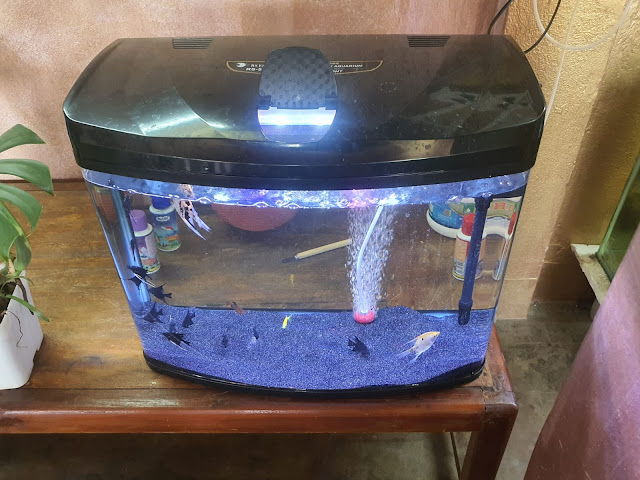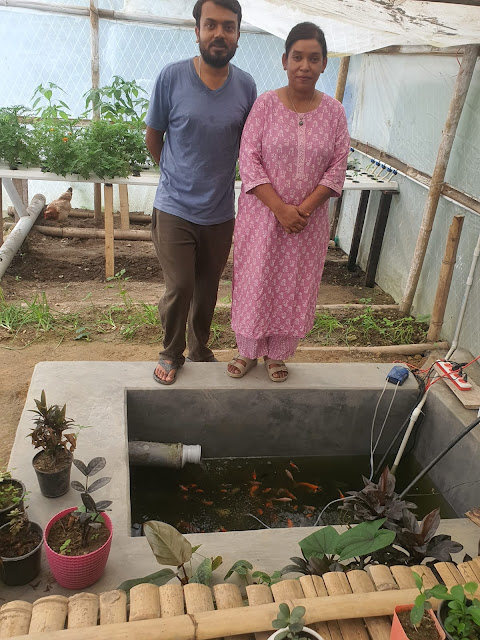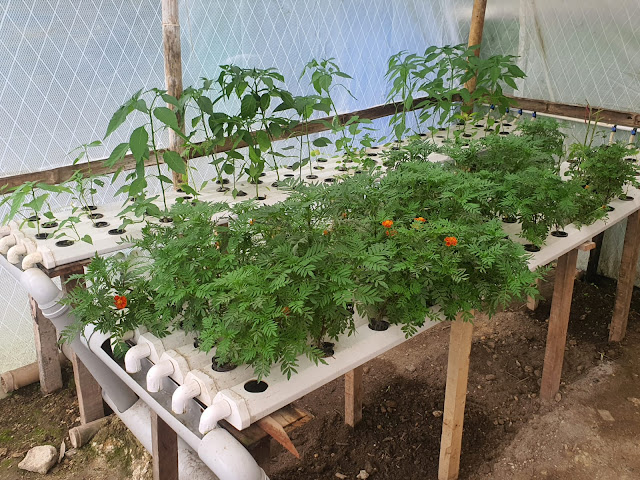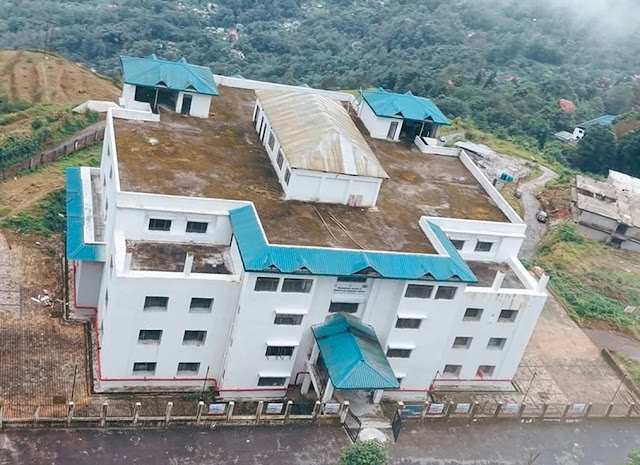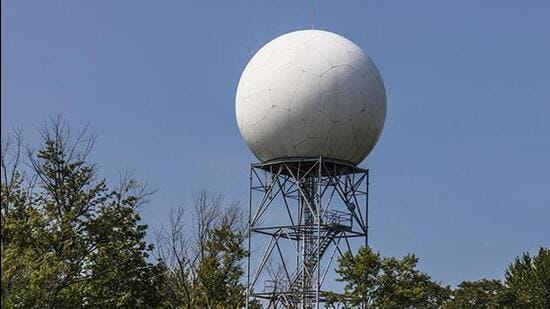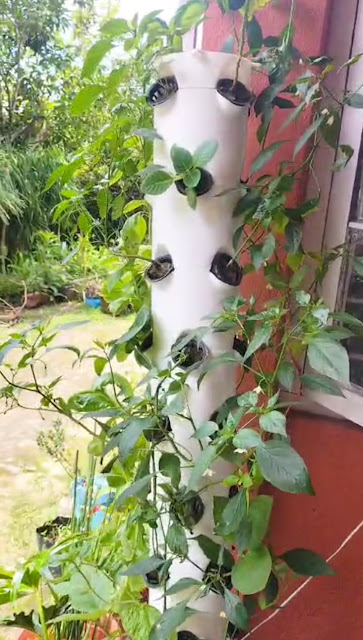 Their aquaponics setup features a diverse range of crops including peas, tomatoes, chillies, and marigolds. With prior experience in cultivating lettuce, capsicum, brinjal, cucumber, and bitter gourd (Karela) through aquaponics at a different location, the Sarkars have expanded their knowledge and skill set to optimize both plant and fish production in their current system.
Their aquaponics setup features a diverse range of crops including peas, tomatoes, chillies, and marigolds. With prior experience in cultivating lettuce, capsicum, brinjal, cucumber, and bitter gourd (Karela) through aquaponics at a different location, the Sarkars have expanded their knowledge and skill set to optimize both plant and fish production in their current system.
In the aquatic component of the setup, they rear various species of aquarium fish such as koi carp, guppy, molly, goldfish, zebra, tetra, and tiger shark. They also breed exotic species like discus, arowana, feather fish, angel fish, and cichlids. In addition to aquaponics, the couple is actively involved in customized aquarium installations and guppy fish breeding, providing services to enthusiasts and customers alike.
Aquaponics, the innovative method they employ, uses a closed-loop water system that supports both fish and plant growth. Wastewater from the fish tanks, rich in nutrients, is used to nourish the plants, while the plants, in turn, help purify the water before it is recirculated—thus maximizing efficiency and minimizing waste. According to the Sarkars, this method significantly accelerates the production of fish, vegetables, and even flowers.
Their venture is not just limited to current farming activities. The couple has laid out an ambitious roadmap for the future. Among their plans is the establishment of an Aquarium House dedicated to the memory of Mrs. Sarkar’s late father, Lt. Kripan Sarkar. Construction of a homestay is also underway to attract visitors interested in eco-tourism and sustainable farming models. Additionally, they are raising local chicken breeds, currently owning seven, and have begun preparations for mushroom cultivation.
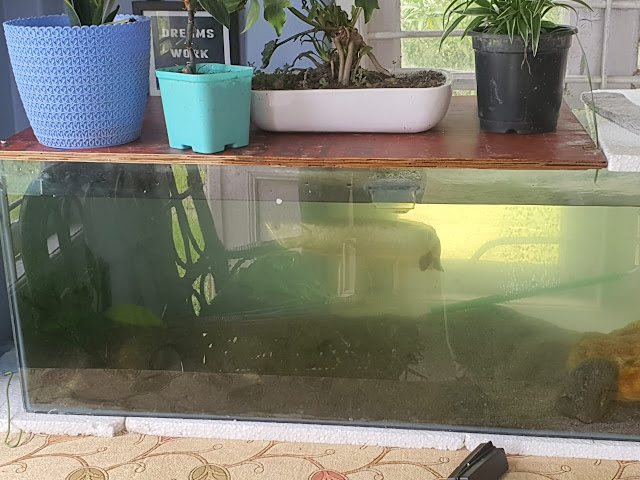 The Sarkars also plan to introduce hydroponic farming using vertical tower stands for growing leafy vegetables without soil, utilizing nutrient-rich water. In an innovative twist, they intend to cultivate underground crops like potatoes and carrots beneath the aquaponics structure by leveraging the excess drip water from the system. Looking ahead, they express keen interest in rearing cold-water food fish species such as trout (Asala) and mahseer (Katley), and breeding loaches (locally known as Garela)—a unique aquarium species indigenous to the Kalimpong district.
The Sarkars also plan to introduce hydroponic farming using vertical tower stands for growing leafy vegetables without soil, utilizing nutrient-rich water. In an innovative twist, they intend to cultivate underground crops like potatoes and carrots beneath the aquaponics structure by leveraging the excess drip water from the system. Looking ahead, they express keen interest in rearing cold-water food fish species such as trout (Asala) and mahseer (Katley), and breeding loaches (locally known as Garela)—a unique aquarium species indigenous to the Kalimpong district.
Within just six months of launching their aquaponics venture, the Sarkars have reportedly earned over ₹3 lakh through a combination of fish and vegetable sales as well as custom aquarium installations. Their initiative not only showcases the potential of integrated farming systems in hill districts like Kalimpong but also serves as an inspiring model of innovation, sustainability, and local enterprise.


